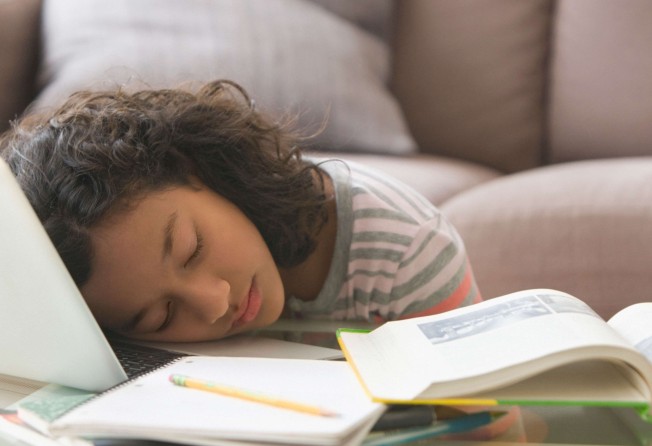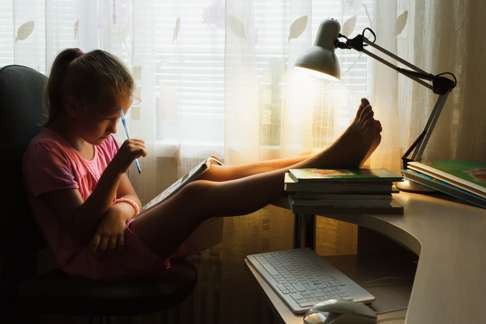
How a Hong Kong primary school pupil’s homework load has put a strain on family life
A mother worries her daughter has so much homework that she has too little time for her hobbies and out-of-school interests

My daughter is in Year Six at a Hong Kong primary school. She has lots of interests outside school, including dancing and sport, but she has so much homework she barely has time to fit these in. I’m totally against children getting such a great deal of homework in primary school. Am I being unreasonable?
You are not alone in your views. A primary school in Britain recently made the bold decision to completely scrap homework. In voting for the change, the positives listed by parents for their children included more time for family, reading and following their individual interests and hobbies.
Parents frequently tell me that compulsory homework has a negative effect on family life and can put strains on relationships at home. Mathematics is a case in point: parents try to help their children using the methods they learned at school, which are often very different to the method the child has been taught. This causes arguments and confusion. Of course, this does not mean parents should never help or advise if their child is struggling in subjects at school.

Less surprisingly, children who did homework before other activities were associated with higher test scores than those who did not prioritise it.
Some educational research indicates that homework can actually turn students off learning and makes little difference to a child’s ability in most areas of the curriculum. However, in Hong Kong academic expectations are high and schools often feel under pressure to give large amounts of homework. They may even get criticised by parents if they fail to do so.
Sometimes, well-meaning parents who work long hours like to feel that their children are “usefully occupied” in the evenings when they are not home, doing homework rather than “wasting time” or spending hours at their computers.
I believe primary school children should have time to follow their own interests after a productive day of learning at school. The importance of creative play for a child’s development is often underestimated. Research shows that “down time” and time for a child to just “be” – the chance to play, think, imagine, socialise and dream – not only lead to creativity but can increase concentration and performance at school. Making time for physical exercise can also be undervalued.
Importantly, reading for pleasure should not be seen as “homework” but a crucial time to build a lifelong love of reading. It is sad that your daughter’s reading time is being compromised. I believe that reading is the cornerstone to academic success, and books help children learn about life, relationships and the world around them.

Usually the focus is on consolidating what has been learned in class, but homework can lurch between mindless practise of something that is too easy, or work that is so hard that parents themselves end up doing it for their children.
With your daughter being in the top year at primary school she may be given more challenging, open-ended activities such as research projects. These can be interesting and rewarding, but there is no denying that such tasks can be time consuming. Teachers should certainly think carefully about how much homework they are setting and the pedagogy behind it, with a focus on quality rather than quantity.
Homework can be valuable in helping parents to understand what their children are learning in school. In an ideal world it would be assessed promptly and useful feedback given to individual students, but with large class sizes and time constraints of a busy schoolday this rarely happens.
Some children are well-organised and self-disciplined, but every child has different levels of concentration and commitment. There are parental strategies that can help students to complete homework with as little pain as possible. These include providing the incentive of pleasurable activities once homework is completed and restricted access to the internet unless it is needed for research tasks.
Ideally children should have a comfortable, uncluttered workspace free of distractions such as siblings or television.
Julie McGuire is a former Hong Kong primary school teacher